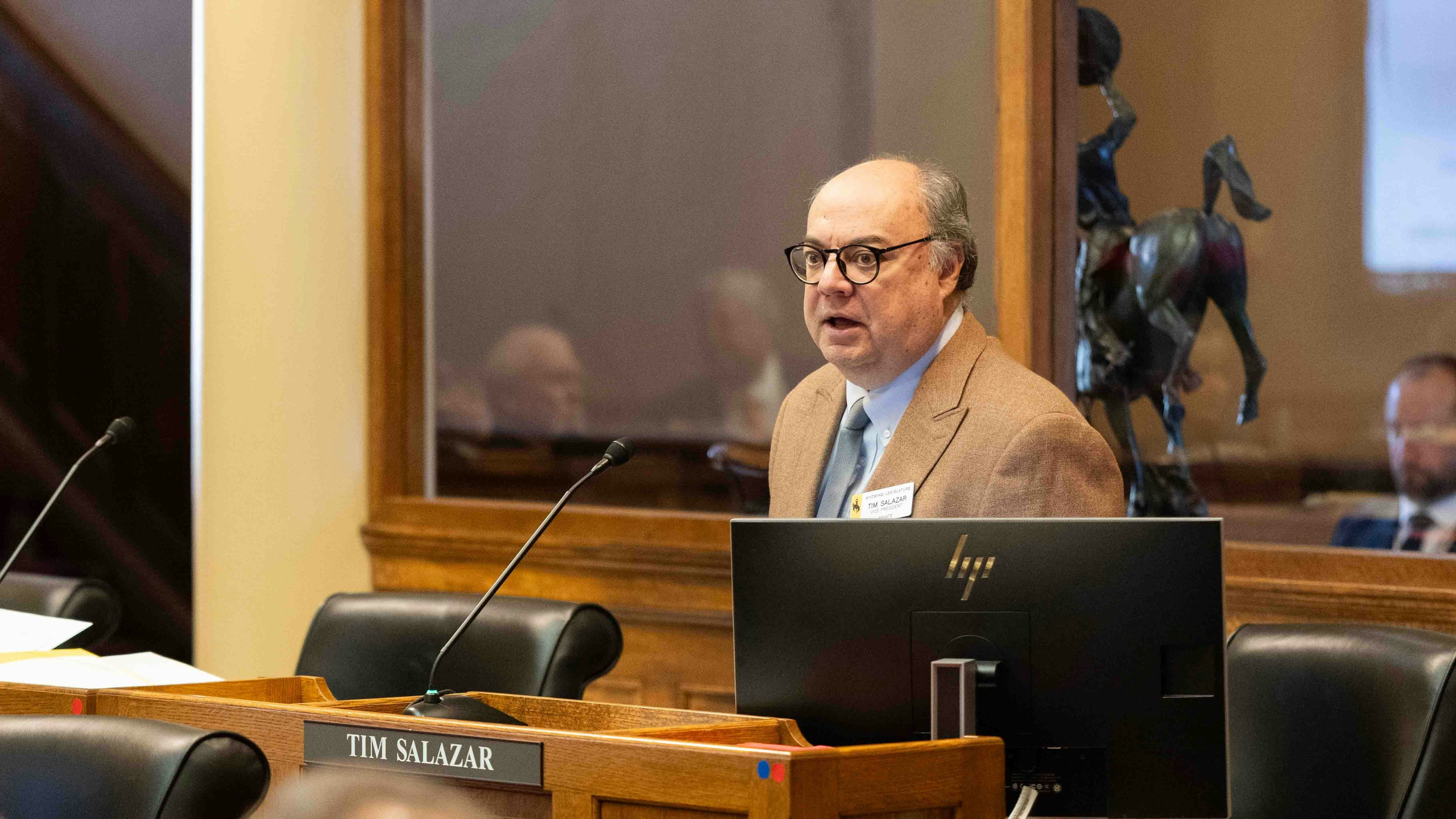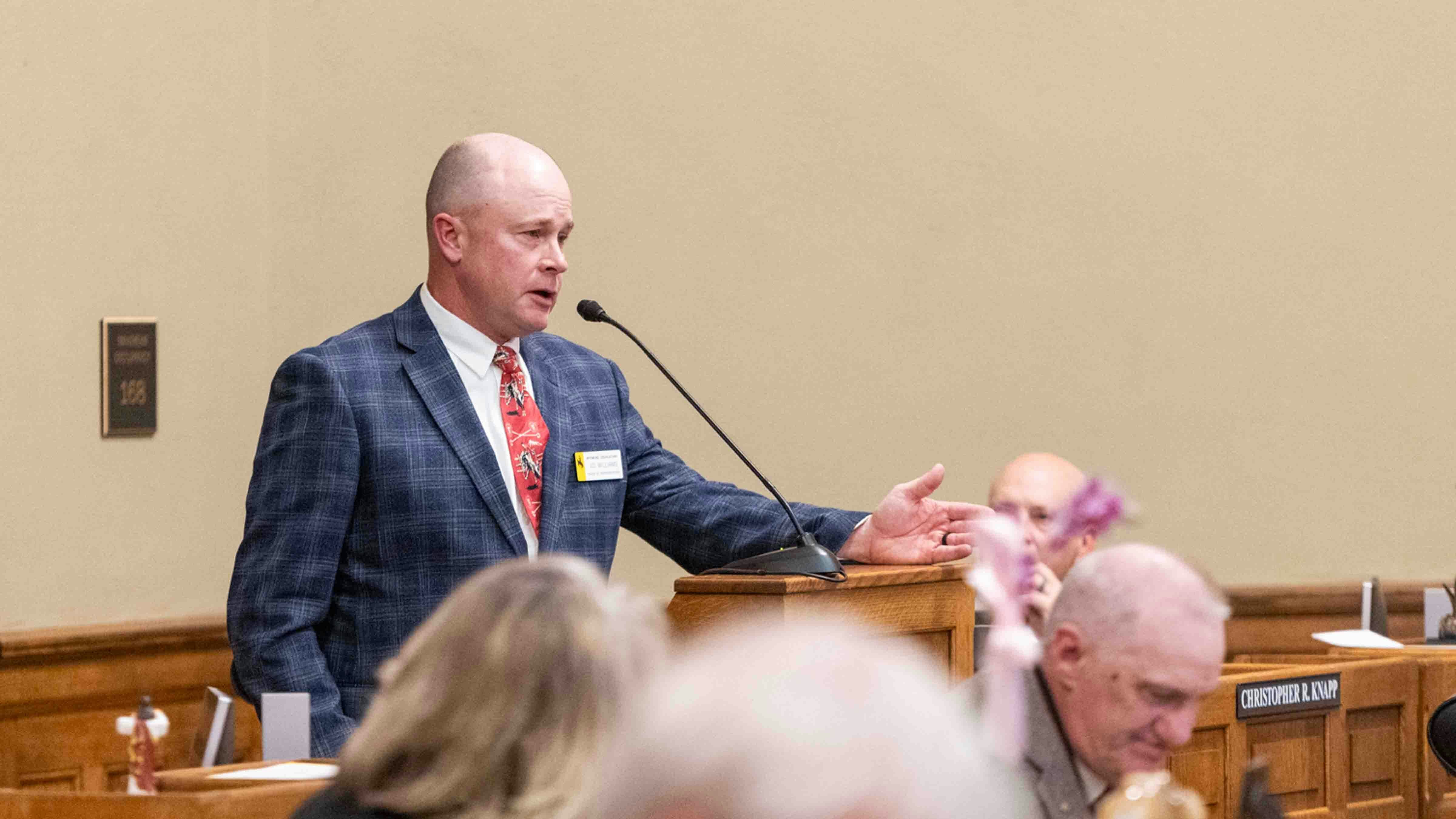As the clock struck 12 a.m. Monday, a pair of new laws went into effect in Wyoming.
One is House Enrolled Act 73, a bill brought by state Rep. David Northrup, R-Powell, that establishes higher license fees for nonresident hunting in Wyoming. The other mandates health care plans for babies born with drug or alcohol exposure.
Last March, Gov. Mark Gordon signed into law the corresponding House Bill 200, which authorizes significant hikes in special draw license fees, as well as the price of licenses for the state’s “Big Five” trophy game species: Rocky Mountain bighorn sheep, Rocky Mountain goats, moose, bison and grizzly bears. Grizzlies, however, remain protected in Wyoming and can’t be hunted.
During drawings for nonresident hunting licenses, 40% are set aside for the special drawing for tags. The remaining 60% are for the general draw.
Hunters applying for the 40% special draw licenses must pay a fee in addition to the base license fee. And it is those special draw fees that are increasing.
That includes a jump from $576 to $1,258 for the elk special license draw fee, from $288 to $825 for deer and from $288 to $874 for antelope.
For instance, a nonresident going for a 40% special drawing elk tag would have to pay the $692 for the license, plus $1,258 for the special draw license fee, for a total of $1,950.
There will also be hikes in nonresident license prices for the Big Five trophy game species.
The price of a nonresident bighorn sheep tag will jump from $2,318 to $3,000, mountain goat from $2,160 to $2,750, moose from $1,980 to $2,750, grizzly from $6,000 to $7,500 and bison from $4,400 to $6,000.
HB 200 passed on a 19-12 vote in the Senate and 43-19 in the House.
Plans For Newborns
Also now law is Senate Enrolled Act 69, a bill brought by Sen. Fred Baldwin, R-Kemmerer, that requires Wyoming health care providers to develop care plans for infants born to people with substance abuse disorders.
Under the new law, when an infant is born with and identified as being affected by substance abuse or withdrawal symptoms resulting from prenatal drug or alcohol exposure, a member of a patient care team must develop a plan in cooperation with the infant's parents, families or guardians for the wellbeing of the infant.
Keeping the infant in the home is to be made a priority within the plan.
The plan is to take into account whether the infant's prenatal drug exposure happened as a result of medication assisted treatment or medication prescribed for the mother by a healthcare provider, and whether the infant's mother is or will be actively engaged in ongoing substance use disorder treatment that would mitigate the future risk of harm to the infant.
A hospital must deliver the total number of people listed in safe care plans to the Wyoming Department of Family Services.
Baldwin’s Senate File 79 passed 31-0 in the Senate and 47-15 in the House.
Other Laws
Other new laws in Wyoming were already in effect prior to the New Year.
- On Oct. 1, 2023, House Enrolled Act 42 went live. It allows the Wyoming Transportation Commission to use alternate contracting methods under certain situations. The bill passed in the House 55-6 and 26-4 in the Senate.
- On July 1, three more laws passed during the 2023 and 2022 legislative sessions will go into effect.
- Senate Enrolled Act 66 eliminates the school major maintenance sub account, redirecting future revenues to the public school foundation program account, which will receive a slightly higher distribution.
- Senate Enrolled Act 68 repeals the Wyoming Education Trust Fund and transfers any unencumbered, unobligated money in the fund to the Common School Account within the Permanent Land Fund.
- House Enrolled 4, passed during the 2022 session, transfers responsibility for managing the juvenile justice information system from the Division of Criminal Investigation to the Department of Family Services.
Leo Wolfson can be reached at leo@cowboystatedaily.com.





